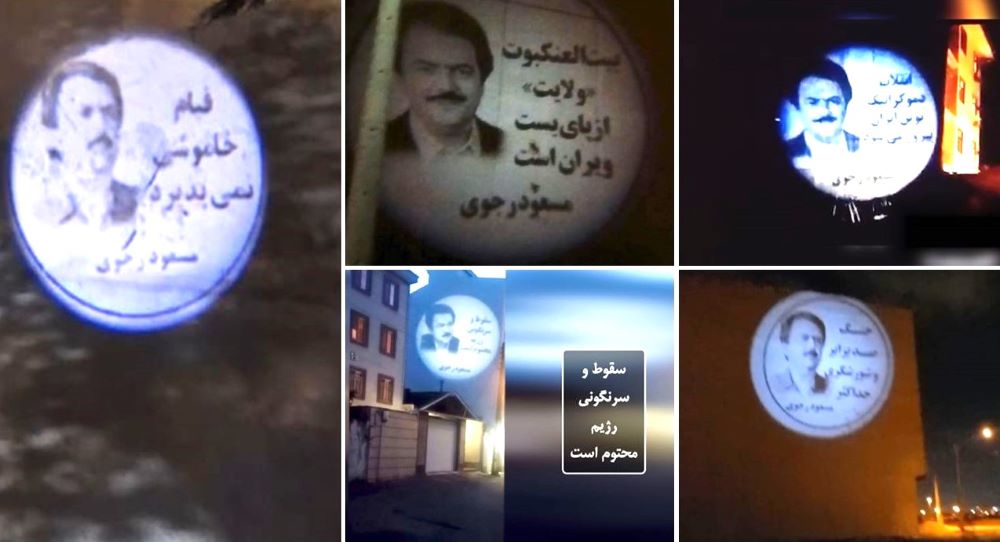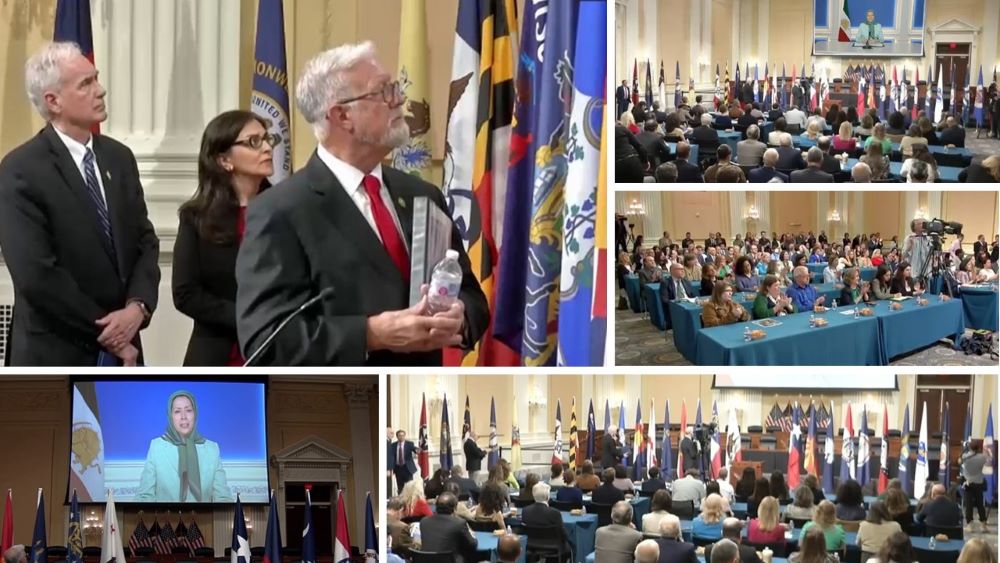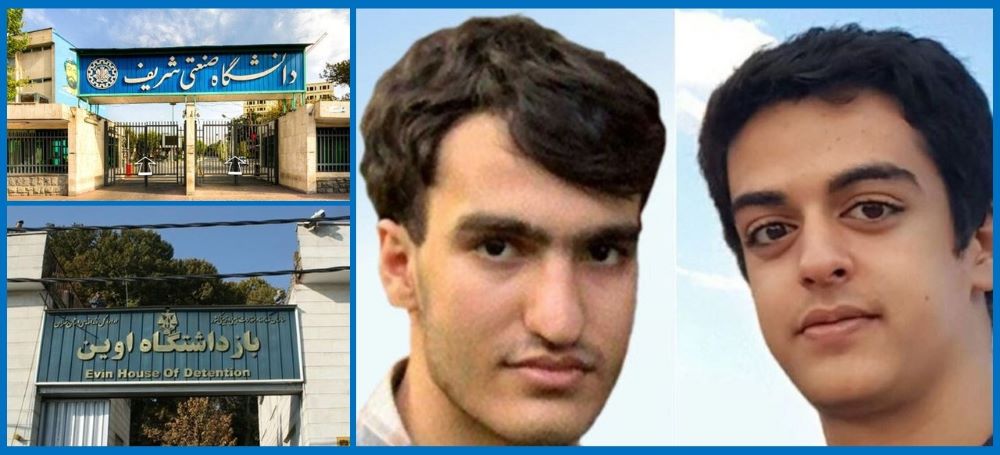On March 7, 2019, a human rights conference was held in the United Nations Office at Geneva under the title of ‘Human Rights Record in Iran in 2018’. The event was organized by five NGOs, with consultative status with the United Nations, to discuss the situation of human rights and the case of the 1988 massacre of political prisoners in Iran.
The members of the panel of the ‘Human Rights Record in Iran in 2018’ Conference included: Taher Boomedra, Struan Stevenson, Rémy Pagani (a member of the Geneva parliament and former mayor of Geneva), and some Iranian speakers.
The conference hostess was Dr. Hanifa Kheiri of the International Women‘s Human Rights Association.
Considering the terrible human rights situation in Iran, which was considered to be embarrassing in the report of 2019 by Amnesty International, holding this meeting was of particular importance.
Holding this meeting and supports from the prominent figures and participants in this event reflect the cries of people inside Iran, who protest in the streets on a daily basis.
Here is the part of speeches of the participant in the conference of Human Rights Record in Iran in 2018
Rémy Pagani: The end of mullahs is getting closer. Demonstrations in Iran are ongoing. An alternative with a real program for a democratic change in Iran exists. The recent report of Amnesty International is worrying. Oppression of regime in the past few months includes over 7.000 arrests including Human Rights Defenders. It is time for the democracy to move forward and human rights to be respected in Iran.
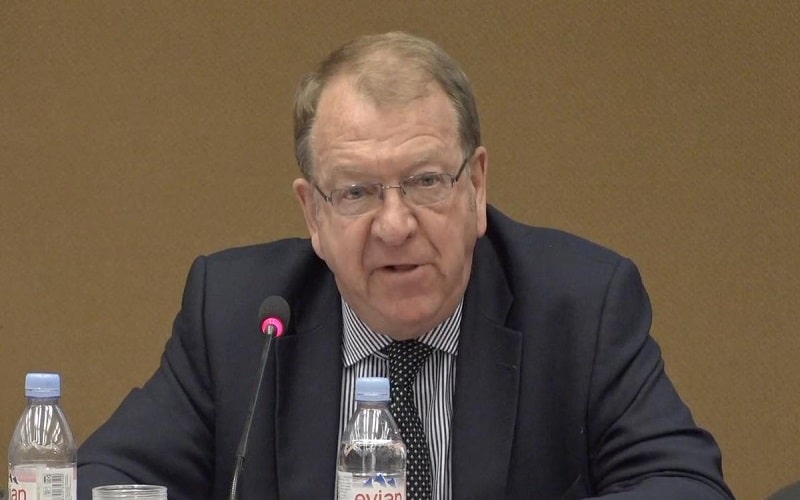
Struan Stevenson: After 40 years of clerical dictatorship, 80 million Iranians have had enough. Men, women, students, and truck drivers have taken to streets in protest against fascist mullahs’ regime. Iran’s middle class has virtually disappeared. The people are faced with soaring food prices and unpaid wages. The IRGC cracks down the demonstrators, arresting over 7.000, murdering and torturing someone of them.
Iran is one of the most repressive states in the Middle East, gouges out eyes and hangs people in public, and has executed over 4000 since the presidency of so-called moderate Rouhani. The regime massacred 30,000 political prisoners, mostly members of the main opposition, the MEK.
Khamenei appointed Raisi, a key figure responsible for the mass executions in 1988 as the head of the judiciary.
In December last year, Albania expelled Iran’s Ambassador for threatening public security of that country. France, Germany and the UK appeared to have a greater hunger for blood-soaked dollars.
The mullahs must be held accountable for their crimes in Iran. Please hear the cries of the oppressed millions of Iranians.
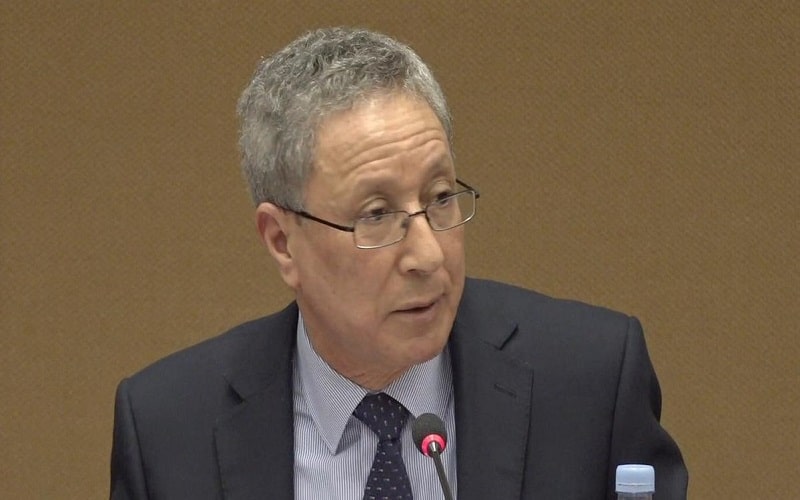
Taher Boomedra: Mrs. Jahangir did excellent work by recognizing the crimes against humanity that had taken place in Iran in 1988. The new Rapporteur just recently published his report totally ignoring the massacre of 1988. I regret that the special rapporteur took this out of his report. The new rapporteur should take up the work where Mrs. Jahangir left off. The crime was confirmed by a big study by Amnesty International. We hope the new rapporteur will continue to work on this issue and his next report will include this crime against humanity perpetrated by the mullahs’ regime in 1988.
If the UN does not take action on the massacres that took place in Iran, that will encourage the regime to continue its behavior as we witnessed last June in Paris
I ask, renew the call for thousands of families of victims to change and correct the fundamental mistake in the Rapporteur’s report as was recognized by his predecessor.
We cannot expect Iran to have any independent investigations, we know that is impossible. We hope the new Rapporteur to join us, the families, former political prisoners, who are waiting and expecting a gesture and want to be heard.
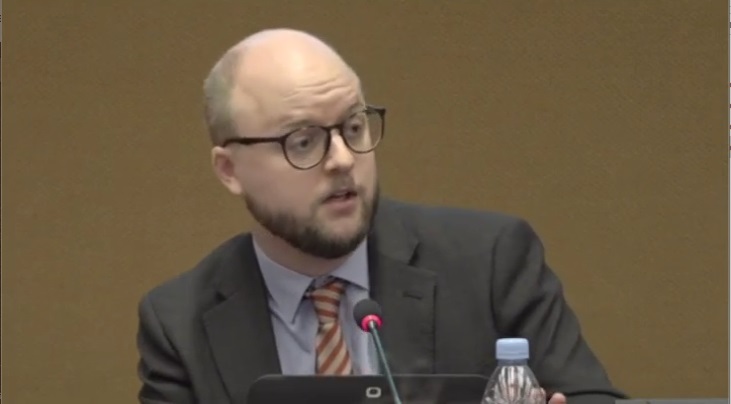
Henrik Hermansson said: With the enormous and brave efforts by the families of the victims with the help of the NGO community this ongoing crime still again on the agenda. The former special rapporteur on the human right situation in Iran who corresponded an independent, international inquiry into the case and devoted significant portions of a report to it. But the new mandate holder does not even mention it. This demonstrates to me that institutional memory of the UN is sadly, deeply dysfunctional. This in piece not only this case but many many others as well and is something that UN urgently needs to address.
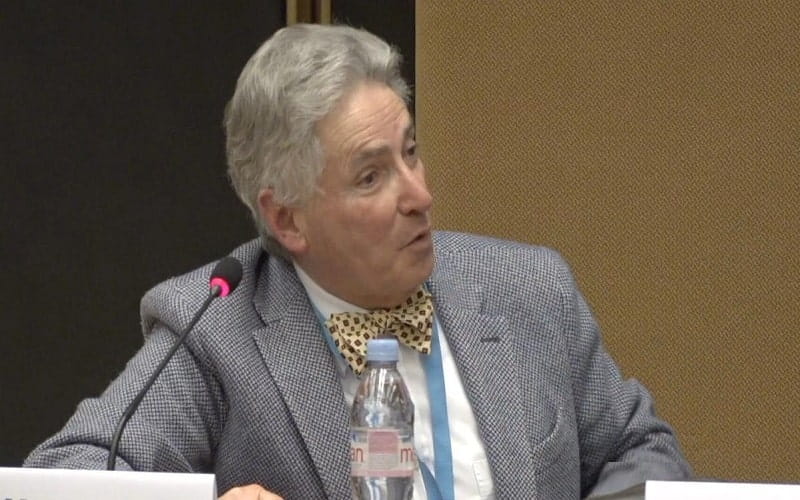
Alfred de Zayas, former UN Independent Expert on the Promotion of a Democratic and Equitable International Order, addressed the conference ‘Human Rights Record in Iran in 2018’:
We must maintain the pressure on mullahs. This is one of the major crimes in the second half of the last century. The families are carrying this trauma.
Mullahs should not enjoy impunity. There are many ways of bringing this to the public.
We concerned about those who have suffered the repression in Iran. The recent UN Special Rapporteur report is a disappointment, but it doesn’t mean that we are going to give up.
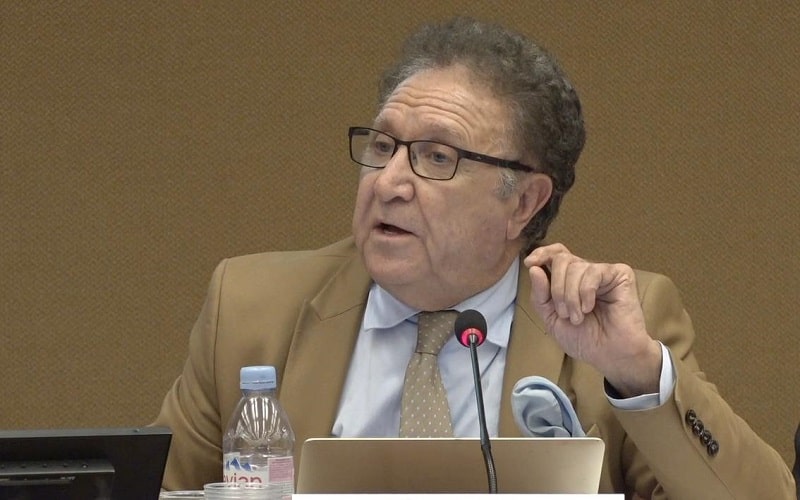
Mr. Parviz Khazai, the NCRI Representative in Nordic countries, at the conference ‘Human Rights Record in Iran in 2018’:
The 30th year that I am attending this session after the assassination of Dr. Kazem Rajavi (the brother of Iranian Resistance leader Massoud Rajavi) by the mullahs’ regime. The regime is at war with its own people but also at war against Lebanese and all nations of the region.
It supports dictators. Spending Iranian assets in wars against the people of the region and elsewhere. A member of the Lebanese Hezbollah was accepted as a citizen of Venezuela and provided a status where he could bring in thousands of members of Hezbollah into that country,” he added, shedding light on Tehran’s belligerence across the Middle East and beyond.
Syrian dictator, Bashar Al-Assad, was recently in Tehran asking for ammunition, more money and more men in Syria while the regime already has 90,000 men there.
Mrs. Maryam Rajavi says if anyone should be blamed for the situation, it is the mullahs and those who have supported and appeased them.
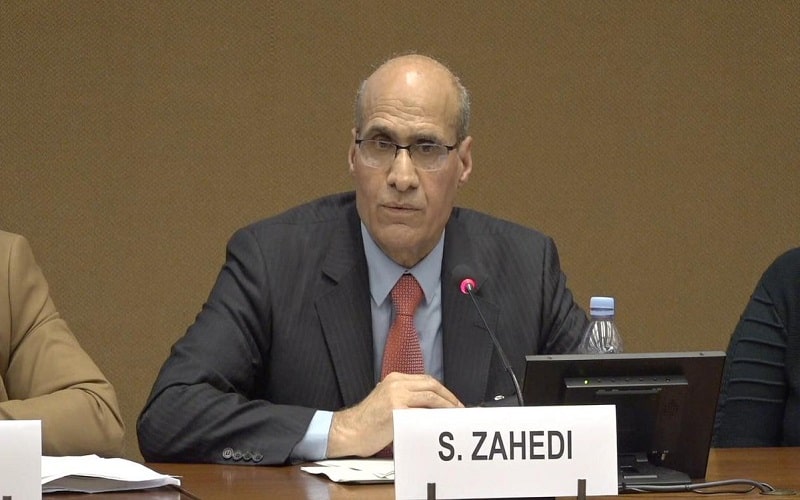
Sanabargh Zahedi, Chairman of the NCRI Judiciary Commission, gave a speech at the conference ‘Human Rights Record in Iran in 2018’:
Ebrahim Raisi has recently been appointed by the mullahs’ Supreme Leader Ali Khamenei as head of the regime’s so-called judiciary. Raisi was a key member of the death committee in 1988. He was responsible for the 1988 massacre, defined by Grand Ayatollah Hossein Ali Montazeri [the sacked successor to regime founder Khomeini] as the greatest crime by the Islamic republic.
The Amnesty International report issued in December identified five individuals, including Raisi, as human rights violators. He should be considered as a serious
With his track record, Raisi now will preside over 16 million cases annually. While the crimes still continue, heads of judiciaries in this regime have been among the main criminals. However, with the appointment of Raisi, Khamenei has made his position clear against people and the PMOI/MEK.
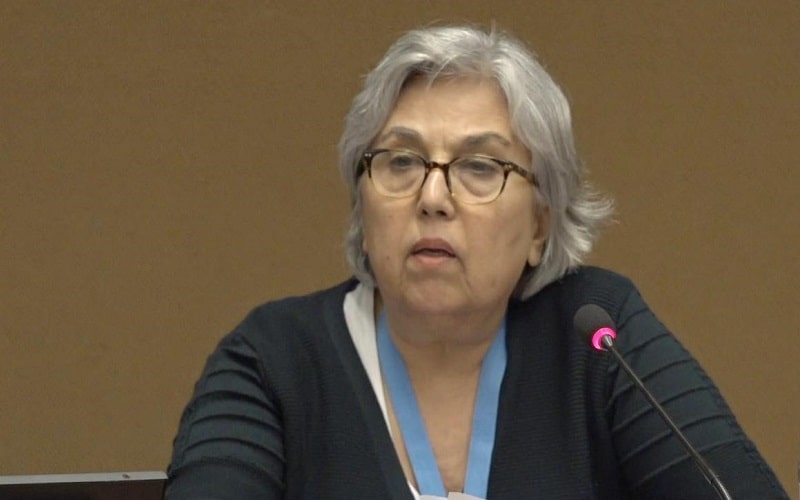
Mrs. Simin Nouri, addressed the conference ‘Human Rights Record in Iran in 2018’:
The appointment Ebrahim Raisi by the regime to the highest post in Judiciary should be condemned.
We know the barbarian acts of the mullahs have nothing to do with the Islamic faith. 87 women have been executed since the so-called moderate Rouhani took office. 30 million women are left with no social aid and some having to resort to prostitution and drug abuse.
There are many misogynist laws in Iran. Nevertheless, I have to insist on the important role of women in the recent uprising against mullahs’ regime. Iranians have stood up to the repression through all means available to them. The uprising that began 14 months ago continues to shake the mullahs’ regime. Regime authorities have confessed that the main triggers to protests have been the women rejecting all powers in the regime and its corruption and expansionism. All women in the Middle East are victims of the Khomeini’s regime and its misogynist practices.
“Demonstrators are facing harassment, arbitrary detentions, tortures and … Amnesty International dubbed 2018 as the ‘year of shame’ for the mullahs’ regime. It is time to morally and physically support protesters in Iran.”
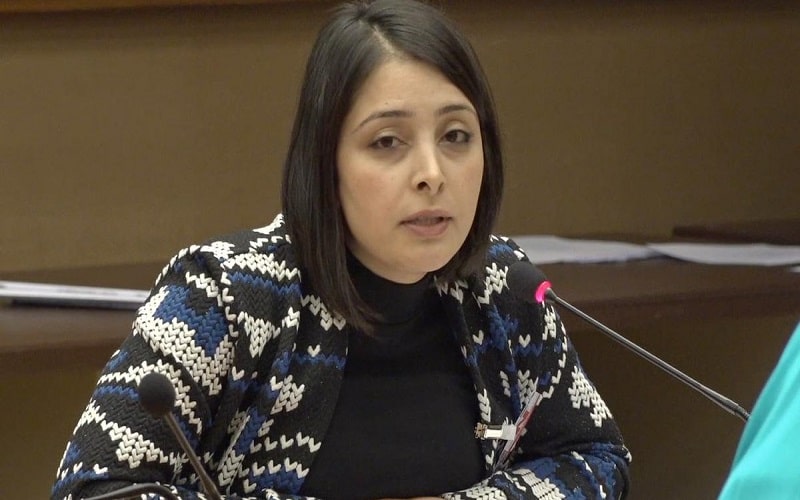
Sahar Sanaie was the next speaker at the conference ‘Human Rights Record in Iran in 2018’: Children are victims of state violence in Iran. They are faced with judicial violence such as public executions.
Public execution shock adults and they leave serious traces on children and traumatize them. Children experience daily humiliation of their mothers and other women of the family. Mother’s go through daily checking of their clothing by regime agents. Even school systems teach girls that they are inferior. Iran has the highest number of suicide among women and girls in the Middle East.
Poverty should also be considered a form of violence. The suffering of poverty is unbearable for the little ones. The children of Iran deserve better. As long as this religious dictatorship remains in power, there is no possibility of healthy growth of children in Iran.
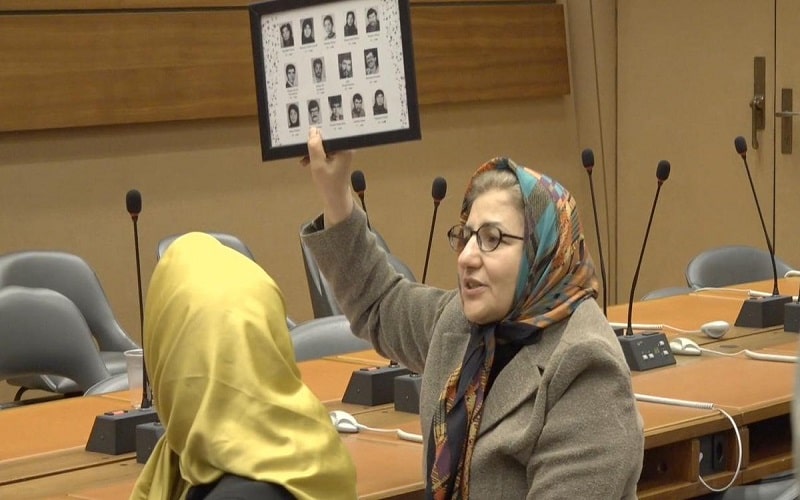
Ms. Sima Mirzaie shared her personal experiences with the conference ‘Human Rights Record in Iran in 2018’: I am here to say that 15 members of my family were executed by the regime. Many under torture. My brother Mostafa was only 16. My sister was 18 when arrested. She was sentenced to five years behind bars. However, despite serving her time, she was kept in prison for another year and executed during the 1988 massacre. It has been 40 years families like mine have had no rest. We ask the UN to bring the perpetrators before trial. It is our legal right to know what transpired with our loved ones.
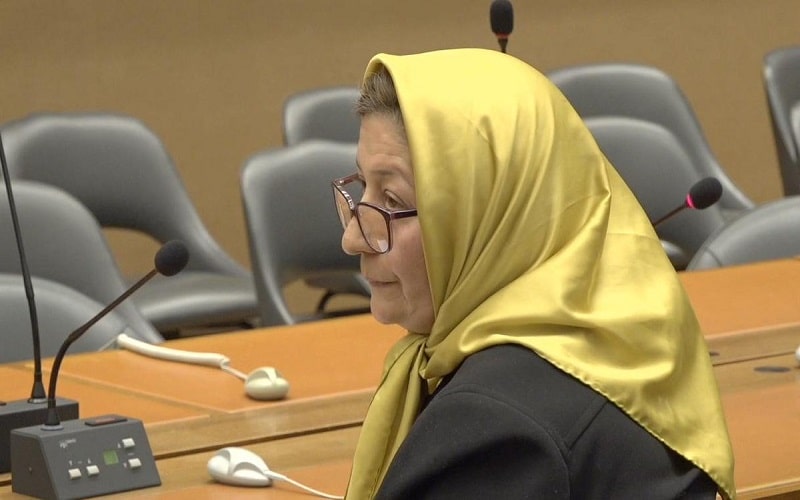
Parvaneh Madanchi, a survivor of the 1988 massacre, talked about her period of imprisonment in Iran, at the conference ‘Human Rights Record in Iran in 2018’: I was arrested in June 1980 in Tehran. During my imprisonment, I was transferred to ‘residential units’ and placed under atrocious physical and psychological torture.
My cellmates were executed through the course of 1988. We have not heard much about this type of prison (the residential units). They were residences of Revolutionary Guards (IRGC) commanders. Prisoners were separated and blindfolded, forced to lay down day and nights. There were many physical and psychological tortures during those periods. We were not safe from the IRGC members, even during sleeping hours.
These prisons were designed to inflict more pressures and humiliate us, women. Interrogators told us that this is a place that no one knows you are here. We had no visits for months. I ask the UN Special Rapporteur to investigate these crimes, especially the 1988 massacre.

